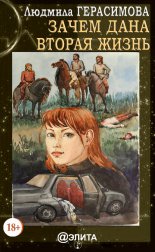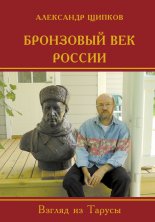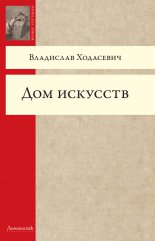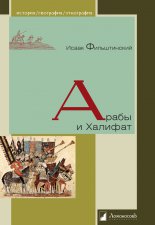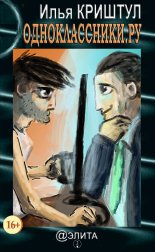Культы, религии, традиции в Китае Васильев Леонид
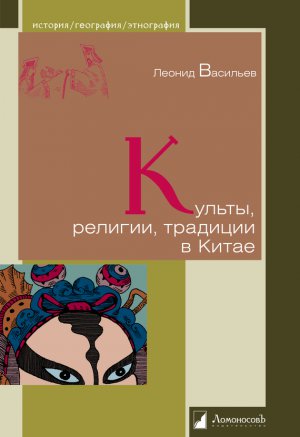
600. M a s p e г о H„ Legendes mythologiques dans le Chou King,— JA, vol. CCII, 1924.
601. Maspero H., Les origines de la communaute bouddhiste de Lo-yang,— JA, vol. CCXXV, 1934.
602. Maspero H., Le serment dans la procedure judiciaire de la Chine Antique,— «Melanges Chinois et Buddhique», t. Ill, 1934—1935.
603. Maspero H., Les procedes de «Nourrir le principle vital» dans la religion taoiste ancienne,— JA, vol. CCXXIX, 1937.
604. Maspero H., Le religion chinoise dans son development histori-que,— MPRHC, vol. I.
605. Maspero H., Le societe et la religion des Chinois anciens et selles des Tai modernes,— MPRHC, vol. I.
606. Maspero H., Comment le Bouddhisme s’est introduit en Chine,— MPRHC, vol. I.
607. Maspero H., Le Taoisme dans les croyances religieuses des Chinois a l’epoque des Six Dynasties,— MPRHC, vol. II.
608. Maspero H., Le poete Hi K'ang et le Club des Sept Sages de la ForSt de Bambous,— MPRHC, vol. II.
609. Maspero H., Essai sur le Taoisme aux premiers siecles de l’ere chretienne,— MPRHC, vol. II.
610. Maspero H., Le saint et la vie mystique chez Lao-tseu et Tchouang-tseu,—MPRHC, vol. II.
611. Maspero H., The Mythology of Modern China,— «Asiatic Mythology», New York, 1963..
612. Maspero H. et Balazs E., Histoire et institutions de la Chine ancienne, Paris, 1967.
613. Maspero H. et EscarraJ., Les institutions de la Chine, Paris, 1952.
614. Masubuchi Т., Characteristics of the Unified States of Ch’in and Han,— RCISH, vol. II.
615. Maverick L. A., China a Model for Europe, San Antonio, Texas, 1946.
616. Mayers W. F., The Chinese eader’s Manual, Shanghai, 1924.
617. Meadows Т. Т., The Chinese and Their Rebellions, London, 1856.
618. M e i Y i - p a o, The Ethical and Political Works of Motze, London,
1929.
619. Mei Y. P., The Basis of Social, Ethical and Spiritual Values in Chinese Philosophy,— CM.
620. Mei Y. P., The Status of the Individual in Chinese Social Thought and Practice,— CM.
621. «Memoires concernant Thistoire, les sciences, les arts, les moeurs, les usages etc. des Chinois, Paris, 1776—1788.
622. Menzel J. М., The Chinese Civil Service. Career Open to Talent? Boston, 1963.
623. M i у a к a w a H., The Confucianization of South China,— CPs.
624. Mo lien dor f P. G., The Family Law of the Chinese, Shanghai, 1896
625. Moore C. A. (ed.), The Chinese Mind. Essentials of Chinese Philosophy and Culture, Honolulu, 1967.
626. Moore C. A., Introduction: The Humanistic Chinese Mind,—CM.
627. Morgan E., Tao. The Great Luminant. Essays from Huai Nan T?u, London, 1933.
628. Mote F. W., Confucian Eremitism in the Yiian Period,— CPs.
629. Mueller H., Ober das taoistische Pantheon der Chinesen, seine Grundlagen und seine historische Entwickelung,— «Zeitschrift fur Ethnologie», Jg. XLIII, <1911; № 3—4.
630. Munsterberg O., Influences Occidentales dans l’art de l’Extreme-Orient, Paris, 1909.
631. Aluramatsu Y., Some Themes in Chinese Rebel Ideologies,— CPs.
632. Nakamura H., The Influence of Confucian Ethics on the Chinese Translations of Buddhist Sutras,— «Sino-Indian Studies. Liebenthat Festschrift», 1957.
633. Nakamura H., Ways of Thinking of Eastern Peoples: India — China — Tibet — Japan, Honolulu, 1964.
634. Needham J., Science and Civilization in China, vol. I, Cambridge, 1954; vol. II, Cambridge, 1956.
635. N i i d a N., Chinese Legal Institutions of the Sui and T’ang Periods and Their Influence on Surrounding East Asian Countries,— RCISH, vol. II.
636. N i s h i j i m a S., Characteristics of the Unified States of Ch’in and Han,—RCISH, vol. II.
637. Nivison D., Introduction,— CAc.
638. Nivison D. S., Protest Against Conventions and Conventions of Protest,— CPs.
639. Nivison D. S., Wright A. E. (ed.), Confucianism in Action, Stanford, 1959.
640. O’Hara A. R., The Position of Woman in Early China, Washington,
1945.
641. Old W. G., The Classics of Confucius. Book of History (Shuking), London, 1918.
642. Pa chow W., Zen Buddhism and Bodhidharma,— «The Indian Historical Quarterly», vol. XXXII, 1956, № 2—3.
643. Parker E. H., Chinese Customs, Shanghai, 1899.
644. Pa rker E. H., China and Religion, New York, 1905.
645. Parker E., Ancient China Simplified, London, 1908.
646. Parker E. H., Studies in Chinese Religion, London, 1910.
647. Pauthier G., Confucius et Mencius, Paris, 1868.
648. Pauthier G., Doctrine de Confucius ou les Quatre livres de philosophic morale et politique de la Chine, Paris, [s. a.].
649. Pel Hot P., Meou-Tseu ou les doutes leves,— TP, vol. XIX, 1920.
650. «Philosophy and Culture East and West. East-West Philosophy in Practical Perspective», ed. C. A. Moore, Honolulu, 1962.
651. P 1 a t h J. H., Die Religion und der Cultus der alten Chinesen, Miin-chen, 1862—1863.
652. PI op per С. H., Chinese Religion Seen Through the Proverb, Shanghai, 1926.
653. Pokora Т., Huan T’an’s Fu on Looking for the Immortals,—AO, vol. 28, 1960.
654. Pokora Т., An Important Crossroad of the Chinese Thought,— AO, vol. 29, ,1961.
655. Pokora Т., The Necessity of a More Thorough Study of Philosopher Wang Ch’ung and of his Predecessors,— AO, vol. 30, 1962.
656. Pokora Т., The Life of Huan T’an,— AO, vol. 31, 1963.
657. Pokora Т., An Attempt at a New Approach Towards Confucianism,— AO, vol. 32, 1964.
658. Pokora Т., Notes on New Studies on Tung Chung-shu (ca. 179 —ca. 104 В. С.),—AO, vol. 33, 1965.
659. Pokora Т., The Concept of Progress in Confucianism. Some Observations on the Utopia of K’ang Yu-wei and Its Historical Presuppositions,— «East and West», vol. 17, 1967, № 3—4.
660. Pott W. S. A., Chinese Political Philosophy, New York, 1925.
661. Pound E., Confucian Analects, London, 1956.
662. Price М. Т., Christian Missions and Oriental Civilization, Shanghai, 1924.
663. P r i p - M о 11 e r Y., Chinese Buddhist Monasteries, Copenhagen, 1937.
664. P u 11 e у b 1 a n к E. G., Neo-Confucianism and Neo-Legalism in T’ane Intellectual Life. 755—805,—CPs.
665. Rachewiltz I., de, Yeh-lfi Ch’u-ts’ai (1189—<1243): Buddliist Idealist and Confucian Statesman,— CPn.
666. Rasmussen O. D., What’s Right with China. An Answer to Foreign Criticism, Shanghai, 1927.
667. Reichelt K. L., Der chinesische Buddhismus, Basel, 1926.
668. Reichelt K. L., Truth and Tradition in Chinese Buddhism, Shanghai, 1927. .
669. Reischauer E. O., Ennin’s Travels in T’ang China, New York, 1955.
670. Reischauer E. O., FairbankJ. K-, East Asia. The Great Tradition, Boston, 1960.
671. Reville A., La religion Chinoise, Paris, 1889.
672. Robinson R. H., Mysticism and Logic in Seng-Chao’s Thought,— PEW, vol. VIII, 1958—1959, № 3/4.
673. Ross E. A., The Changing Chinese, New York, 1911.
674. Rot ours R., des, La religion dans la Chine antique,— Brillant M. e t A i g г a i n R., Histoire des religions, vol. 2, 1953.
675. Rowbotham A. H., Missionary and Mandarin. The Jesuits at the Court of China, Berkeley, <1942.
676. Rowley H. H., Prophecy and Religion in Ancient China and Israel, London, 1956.
677. Ruhlman R., Traditional Heroes in Chinese Popular Fiction,— CPs.
678. R у d h H., On Symbolism in Mortuary Ceramics,— BMFEA, № 1, 1929.
679. R у d h H., Seasonal Fertility Rites and the Death Cult in Scandinavia and China,—BMFEA, № 3, 1931.
680. R у g a 1 о f f A., Confucius, Paris, 1946.
681. S a 1 mon у A., Antler and Tongue. An Essay on Ancient Chinese Symbolism and its Implications, Ascona, 1954.
682. Salmony A., Chinese Jade Through the Wei Dynasty, New York,
1963.
683. «San tzu ching. Translated and annotated by H. A. Giles», Shanghai, 1910.
684. Sargent G.:E* Tchou Hicontre le bouddhisme, Paris, 1955.
685. Sarkar B. K-„ Chinese Religion Through Hindu Eyes, Shanghai.
1916..;
686. Sasaki R. F., A Bibliography of Translations of Zen (Ch'an) Works,—PEW, vol. X, 1960—1961, № 3—4.
687. S a u s s u r e L., d e, Le systeme cosmologique Sino-Iranien,— JA, vol. CCII, 1923.
688. Schafer E. H., Ritual Exposure in Ancient China, — HJAS, vol. 14, 1951.
689. Schindler B., Das Priestertum im alten China, t. I: Konigtum und Priestertum im alten China, Einleitung und Quellen, Leipzig, 1919.
690. Schindler B., The Development of the Chinese Conceptions cf Supreme Beings,— AM («Hirth Anniversary Volume»), 1923.
691. Schirokauer С. М., Chu Hsi’s Political Career: A Study in Ambivalence,— CPn.
692. Schlingloff D., Die Religion des Buddhismus, I. Der Heilsweg des Monchtums, Berlin, 1962.
693. Schmitt E., Die Grundlagen der chinesischen Ehe, Leipzig, 1927.
694. Schmitt G., Der Wind als Phonix. Totem und Tabu,—«Mitteilungen des Institute fur Orientforschung», Bd IX, 1963, № 2/3.
695. Schwartz B., The Intellectual History of China: Preliminary Reflections,— CTI.
696. Schwartz B., Some Polarities in Confucian Thought,— CAc.
697. S e 1 b у T. G., Chinamen at Home, London, 1900.
698. Selby T. G., As the Chinese See us, London* 1901.
6991 Shah S. I., Oriental Magic, New York, 1957.
700. S h i h R., Biographies des moines eminents (Kao Seng Tchouan) de Houei-kiao, Louvain, 1968.
701. S h i h V. Y. C., Metaphisical Tendencies in Mencius,^- PEW, vol. XII, 1963, № 4.
702. Shih V. Y. C., The Taiping Ideology. Its Sources, Interpretations and Influences, Seattle— London, 1967.
703. Shryock J., The Temples of Anking and their Cults, Paris, 1931.
704. Shryock J., The Origin and Development of.the State Cult of Confucius, New York, 1932.
705. S i v i n N., Chinese Alchemy: Preliminary Studies, Cambridge, Mass.,
1968.
706. SmithA.H., Moeurs curieuses des chinois,Paris, 1927.
707. SmithD.H., Chinese Concepts of theSoul,—«Nymen», vol.V,
1958.
708. SmithD.H., Religious Developments inAncient ChinaPriorto
Confucius,— «Bulletin of the John RylandsLibrary», vol.44, 196?,
708a. Smith D. H„ Chinese Religions, London, 1968.
709. S о о t h i 11 W. E., The Three Religions of China, London, 1923.
710. Soot hill W. Ё., The Hall of Light. A Study of Early Chinese Kingship, London, 1991.
711. S о у m i ё М., Les songes et leur interpolation en Chine,— «Les son-ges et leur interpretation», Paris, 1959.
712. S p г e n к e 1 О. B., Max Weber on China,— «History and Theory», vol. Ill, 1964, № 3,
713. Steele J., The I-li, or Book of Etiquette and Ceremonial, London,
1917.
714. Stein R., Remarques sur les Mouvements du taoisme politico-religi-eux a II siecle apres J. C.,— TP, vol. L, 1963.
715. «Studies of Governmental Institutions in Chinese History», ed. J. L. Bishop, Cambridge, Mass., 1968.
716. Suzuki D. Т., Outlines of Mahdyana Buddhism, London, 1907.
717. Suzuki D. Т., A Brief History of Early Chinese Philosophy, London, 1914.
718. Suzuki D. Т., Essais sur le Bouddhisme Zen, Paris, .1940—1943.
719. Suzuki D. Т., Zen. A Reply to Hu Shih,—PEW, vol. Ill, 1953, № 1.
720. Suzuki D. T„ Manual of Zen Buddhism, New York, 1960.
721. «T’ai-Shang Kan-Ying P’ien. Treatise of the Exalted One on Response and Retribution», Chicago — London, 1906.
722. Takakusu J., I-Tsing. A Record of the Buddhistic Religion, Oxford, 1896.
723. T a n С. C., The Boxer Catastrophe, New York, 1955.
724. T’ang ChGn-i, The Development of Ideas of Spiritual Value in Chinese Philosophy,— PCEW.
725. T’ang Ch&n-i, The T’ien Ming (Heavenly Ordinance) in Pre-Ch’in China,— PEW, 1962, vol. XI, № 4: vol. XII, № 1.
726. T’ang Chfin-i, The Individual and the World in Chinese Methodology— CM.
727. T’ang Yung-T’ung, On «Ко-yi», the Earliest Method by which Indian Buddhism and Chinese Thought were Synthesized,— «S. Rad-hacrishnan. Comparative -Studies in Philosophy Presented in Honor of His Sixtieth Birthday». London, 196Ц.
728. T a о L. K., The Family System in China,— «Sociological Review», vol. VI, 1913, № il.
729. Tch’ou T5-yi, Bronzes antiques de la Chine appartenant i С. T. Loo et Cie, Paris — Bruxelles, 1924..
730. Teng Ssu-yfl, Chinese Influence on the Western Examination System,—HJAS, vol. VII, 1943, № 4.
731. Thomas E. D., Chinese Political Thought, London, 1928;
732. Thomas E. J., The History of Buddhist Thought, London — New York, 1933.
733. Tien Tcheu-kang A., L’idee de Deiu dans les huit premiers classiques chinois, Fribourg, 1942.
734. Ting V. K-, How China Acquired her Civilization, — «Symposium on Chinese Culture», ed. S. H. Chen Zen, Shanghai, 1931.
735. T о p 1 e у М., The Great Way of Former Heaven: A Group of Chinese Secret Religious Sects,— «Bulletin of the Society of Oriental and African Studies», vol. 26, 1963, pt 2.
736. Toynbee A., A Study of History, London, 1934—1961.
737. T s с h e p e A., Der T’ai-schan und seine Kultstatten, Jentschoufu, 1906.
738. Tsukamoto Z., The Dates of Kumarajiva and Seng-chao Reexamined,— SJ.
739. Tung Li-ch’en, Annual Customs and Festivals in Peking, Hong Kong, 1965.
740. Tung Tso-pin, Fifty Years of Studies in Oracle Inscriptions, Tokyo, 1964.
741. Twitchett D. C., Monastic Estates in T’ang China,— AM, vol. V, 1956, pt 2.
742. Twitchett D., The Fan Clan’s Charitable Estate, 1050—1760,— CAc.
743. Twitchett D., Problems of Chinese Biography,— CPn.
744. Van Gulik R. H., Sexual Life in Ancient China, Leiden, 1961.
745. Vandermersch L., La formation du legisme, Paris, 1965.
746. Vandier-Nicolas N., Le taoisme, Paris, 1965.
747. Vasilyev L. S., Certain Aspects of Ancient Chinese Religion, Moscow, 1967.
748. Visser M. W., d e, The Dragon in China and Japan, Amsterdam, 1913'.
749. Visser M. W., de. The Archats in China and Japan, Berlin, 1923.
750. Wales H. G. Q., The Indianization of China and of South-East Asia, London, 1967.
751. Waley A., Magical Use of Phallic Representations,— BMFEA, № 3,.
1931.
752. Waley A., The Analects of Confucius, London, 1938.
753. Waley A., The Nine Songs. A Study of Shamanism in Ancient China,. London, 1955.
754. Waley A., The Way and its Power, London, 1956.
755. Waley A., Three Ways of Thought in Ancient China, London, 1963.
756. Wang Ching-dao, Confucius and new China, Shanghai, 1912.
757. Wang Y. C., Chinese Intellectuals and the West. 1872—1949, Chapel Hill, North Carolina, 1966.
758. Wang Yi-t’ung, Slaves and Other Comparable Social Groups-During the Northern Dynasties (386—618),— HJAS, vol. XVI, 1953, № 3/4.
759. Wang Yii-ch’flan, An Outline of the Central Government of the-Former Han Dynasty,— HJAS, vol. XII, 1949.
760. Ward J. S. M. and Stirling W. G., The Hung Society or the-Society of Heaven and Earth, London, 1925—<1926.
761. WareJ.R., Wei Shou onBuddhism.— TP, vol. XXX, .1933,
762. WareJ.R., The Wei Shuand the Sui Shu on Taoism, — JAOS, vol.53,.
1933, № 3.
763. WareJ.[R.], Once Morethe Golden Man,—TP, vol. XXXIV, 1938.
764. W a s si 1j e w W. P., DieErschliessung Chinas, Leipzig, 1909.
765. Waterbury F., Bird-Deities in China, Ascona, 1952.
766. Waterbury F., Speculations on the Significance of a Ho in the Freer Gallery,—AA, vol. XV, 1952, № 1/2.
767. Watson B., Mo Tzu. Basic Writings, New York—London, 1963.
768. Watson W., Ancient Chinese Bronzes, London, '1962.
769. W a 11 s A. W., The Spirit of Zen, New York, 1960.
770. Weber М., The Religion of China. Confucianism and Taoism, New York — London, 1964.
771. Wei F. С. М., The Spirit of Chinese Culture, New York, 1947.
772. Welch H„ The Parting of the Way, Boston, 1957.
773. Welch H., The Chang Ten Shih and Taoism in China,— JOS, vol. IV, 1957—11958 (1960), № 1—2.
774. Welch H., The Practice of Chinese Buddhism, Cambridge, Mass., 1967.
775. Wejch H., The Buddhist Revival in China, Cambridge, Mass., 1968.
776. Werner E. Т. C., Myths and Legends of China, London, 1924.
777. Werner E. Т. C., A Dictionary of Chinese Mythology, Shanghai,
1932.
778. Wieger L., Moral Tenet and Customs in China, Ho-Kien-fu, 1913.
779. Wieger L., Taoisme. Les peres du systeme taoiste. Lao-tzeu, Lie-tzeu, Tchoang-tzeu, Paris, 1913.
780. Wieger L., A History of the Religious Beliefs and Philosophical Opinions in China, Hsien-nsien, 1927.
781. Wieger L„ Les vies chinoises du Buddha, Paris, 1951.
782. Wieger L., Vinaya. Monachisme et discipline. Hinayana, vehicle inferior, Paris, 1951.
783. Wilhelm R., Lia Dsi. Das wahre Buch vom quellenden Urgrund, Jena, 1911.
784. Wilhelm R., Dschuang Dsi. Das wahre Buch vom stidlichen Blflten-land, Jena, 1920.
785. Wilhelm R., Lao-tse und der Taoismus, Stuttgart, 1925.
786. Wilhelm R., Kung-tse. Leben und Werk, Stuttgart, 1925.
787. Wilhelm R., .K’ungtse und der Konfucianismus, Berlin — Leipzig,
